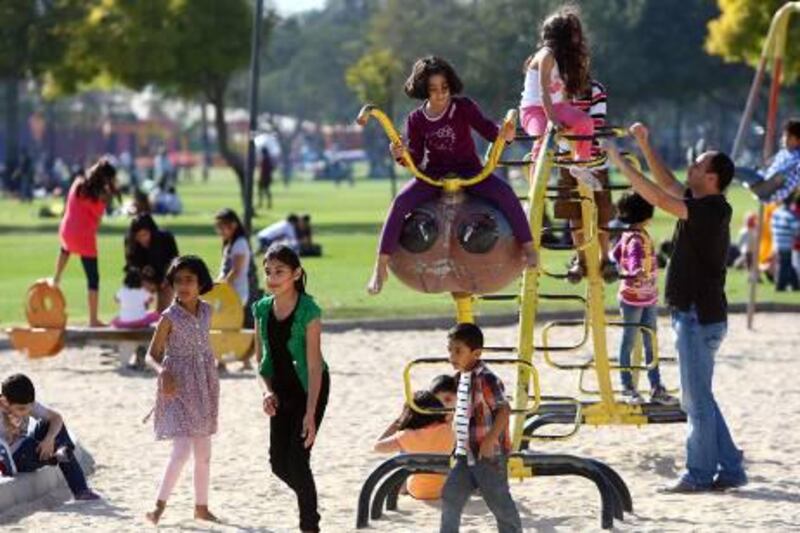DUBAI // Residents of the Emirates are among the happiest in the world, a study shows.
We are least likely to have negative thoughts about the country we live in, according to a "societal values survey".
The study asked people about their perception of life, with only 12 per cent of answers negative.
More than 4,000 people - 57 per cent of them Emiratis - took part in the survey. It was conducted by Watani, a programme set up by Sheikh Mohammed bin Rashid, Vice President and Ruler of Dubai, to promote national identity.
"The results show that Emiratis and non-Emiratis see the same values as being important in society," said Richard Barrett, founder of the UK-based Barrett Values Centre, which carried out the survey with Rayak, Watani's newly established Emirati opinion polling company.
The 10 most important values in the UAE, respondents said, included concern for future generations, respect, and community pride.
The main source of negativity - attracting 8 per cent of the vote - related to "materialism".
The Barrett Values Centre has carried out surveys in 18 nations. Only people living in Bhutan, in South Asia, saw life less negatively than those in the UAE.
The UK has the most negativity, with 59 per cent, followed by France and the US. Crime, drugs and uncertainty about the future were among the top 10 causes of negative thoughts.
Dherar Belhoul, director general of Watani, said the UAE was not content to rest on its laurels as the second least negative country.
"We're not saying that there's nothing to improve upon," he said. "To go to the next step, you have to admit there's something wrong.
"Some countries would be happy about getting just 12 per cent negativity, but we're not happy. We are not satisfied with this. We want to be number one, to have the lowest levels of negativity."
Mr Barrett admitted the survey had a demographically disproportionate number of Emirati respondents, but this because they wished to clearly gauge the opinion of citizens.
He initially suspected Emiratis' cultural aversion to openly criticising their country could have skewed the results.
"That was my first worry," he said. "So I dug deeply into the way the data was collected. We didn't see any difference between the people who went online anonymously at home, where there was nobody looking, to people who were asked the question on a paper survey."
Mr Barrett now plans to conduct values surveys in four Government ministries. "We want to help them understand what people in the organisation appreciate ... and help them transform to decrease the level of cultural entropy, or dysfunction, and increase the level of engagement," he said.






